How could the Oscars ignore these brilliant women directors?
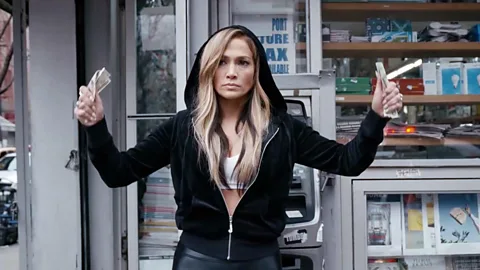 Alamy
AlamyYet again, the Academy have produced an all-male best director shortlist. Here are some of the incredible female filmmakers that could – and should – have broken up the boys’ club.
The most memorable single moment of yesterday’s Oscar nominations came not from any single inclusion or exclusion, but from presenter Issa Rae’s deliciously pointed statement “congratulations to those men” on introducing the Best Director shortlist. Yes, that’s right, yet again, for the 87th time in the Oscars’ 92-year history, no space could be found in the category for a single woman – a fact all the more egregious when you consider the depth and breadth of films directed by women this year. So, as a correction to this, here’s our list of this year’s great female directors, any of whom more than merited a nod:
Waad Al-Kateab, For Sama
 Channel 4
Channel 4This documentary about the horrors of the Syrian civil war has rightly been getting a good spread of awards recognition, receiving four Bafta nominations – the most ever for a documentary – as well as an Oscar nod in that category. But frankly, the achievement of its co-director Al-Kateab is so extraordinary that she deserves even greater credit. For those who don’t know: Al-Kateab was a student living in Aleppo as it became a chief battleground in the war, who filmed her experiences over five years, as a nascent journalist, the wife of a doctor running a volunteer hospital, and the mother of a young daughter. The film that emerges from her footage (assembled and edited with her co-director Edward Watts) depicts the effects of war with unparalleled detail and nuance, and leaves you marvelling equally at Al-Kateab’s bravery and self-taught skill. Direction simply doesn’t get more vital than this. (Hugh Montgomery)
Claire Denis, High Life
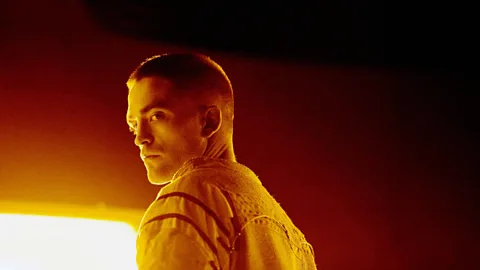 Alamy
AlamyIt was excellent (if expected) to see South Korea’s Bong Joon Ho among the best director nominees for the exquisite social horror Parasite, but we would have loved to have seen another magisterially strange non-US auteur in contention: that French cinematic legend Claire Denis, whose first English-language film was an especially twisted take on the space movie about a vessel of prisoners on a journey into a black hole. Unsurprisingly, given its maverick creator, it eschews the usual cod-spiritual cliches for a fascinating corporeality that includes Juliette Binoche as a breeding-fixated doctor, and a lot of bodily fluids. One can only hope we get a Denis spin on more mainstream movie genres. (HM)
Mati Diop, Atlantics
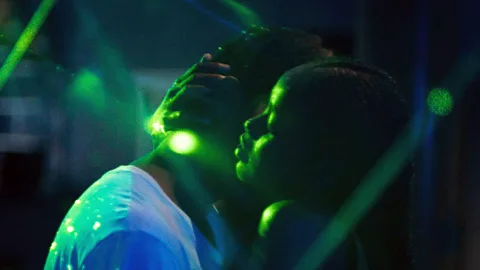 Alamy
AlamyWhen Diop’s debut premiered at Cannes last year, she became the first ever black female director to have a film in competition at the festival. But even if you knew nothing about its director (who starred in Claire Denis’ 35 Shots of Rum), it was thrillingly unique. Beginning as an angry social-realist chronicle of the rich exploiting the poor in Dakar, Senegal, the film transforms itself, magically, into a spine-tingling supernatural fable without sacrificing any of its conviction. Diop seems to re-invent two different genres in one go. (Nicholas Barber)
Greta Gerwig, Little Women
 Alamy
AlamyIgnoring Gerwig’s direction of this stunning film is the most baffling and outrageous omission this year. Her bold restructuring of the classic novel is timely in its feminist undercurrent, emotionally real thanks to its richly played characters (at least Saoirse Ronan and Florence Pugh got nominations), and visually beautiful in every frame. It's even a commercial hit, earning more than $100m (£77m) globally so far. The film is up for best picture and Gerwig was nominated for adapted screenplay (often the consolation-prize category). What more do Oscars voters want? Giving Todd Phillips a director’s nod for Joker instead of Gerwig just shrieks ‘Boys Club’. As she demonstrated with Lady Bird, Gerwig is an amazingly self-assured filmmaker, so she'll be fine. The snub suggests that Hollywood is not. (Caryn James)
Marielle Heller, A Beautiful Day in the Neighbourhood
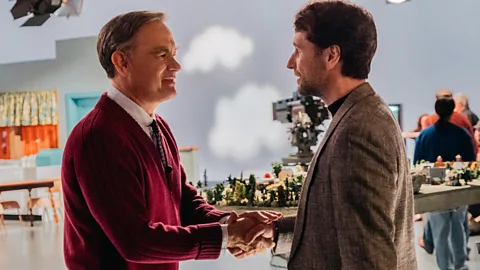 Alamy
AlamyIn only three films, including the sharp and knowing Diary of a Teenage Girl, and the droll Can You Ever Forgive Me?, Heller has created a record astonishing for any filmmaker. Directing beloved superstar Tom Hanks, the stakes were even higher this year, and she came through by leading him to a ing-actor nomination as US children’s entertainer Mr Rogers, allowing the full complexity of the character to shine through his goody-goody image. Heller brings unusual intelligence and flair to mainstream films. Why doesn’t she get more credit? One reason may be that she makes it all look so smooth and deceptively easy. (CJ)
Joanna Hogg, The Souvenir
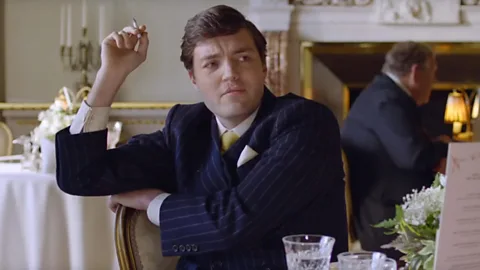 Alamy
AlamyHogg’s films are so distinctive that the adjective Hoggian should be added to the cinema-studies lexicon. No one else scrutinises the privileged but angst-addled English upper-middle class with such a clear, unblinking eye. Her most uncomfortably honest film so far is The Souvenir, an autobiographical coming-of-age drama about a naive film student (Honor Swinton Byrne) and her outwardly respectable but heroin-addicted boyfriend (Tom Burke), Anthony. The Souvenir may be set in the 1980s, but in Anthony’s prickly condescension, leeching sense of entitlement and distancing ironic humour, you can learn a lot about today’s British politicians. (NB)
Jennifer Kent, The Nightingale
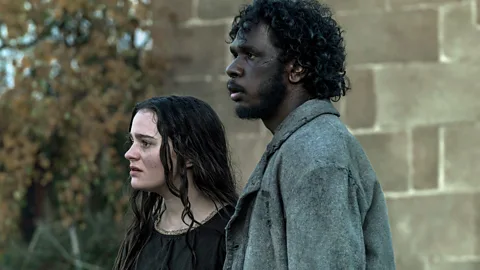 Alamy
AlamyThe Babadook was one of the most nerve-fraying horror films of the last decade, but not even that could prepare audiences for Kent’s ambitious follow-up, a staggering wilderness revenge thriller which also succeeds as an important, far-reaching examination of Australia’s grisly colonial history. The protagonists are an Irishwoman and an Aboriginal Tasmanian who hunt down the English soldiers who murdered the woman’s husband and baby. No, it’s not an easy watch, but The Nightingale is an epic which doesn’t waste a moment of its two-and-a-quarter-hour running time. A major work of world cinema. (NB)
Melina Matsoukas, Queen & Slim
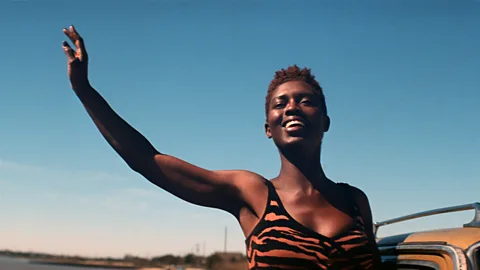 Alamy
AlamyQueen & Slim is Matsoukas’s first feature, but her background as the director of audacious, stunning videos, including Beyonce’s Formation, is evident. This daring film is a road movie, a crime story and a romance, all embedded in a deep sense of social injustice, while Daniel Kaluuya and Jodie Turner-Smith engage us with their characters, two apparently mismatched people on the run after accidentally killing a white policeman. With stunning images, bright colours and sweeping camera work, Matsoukas’s drama displays a vision that is uncompromising in its mix of art and social awareness. Hers is just the kind of singular voice the movie world needs. (CJ)
Sacha Polak, Dirty God
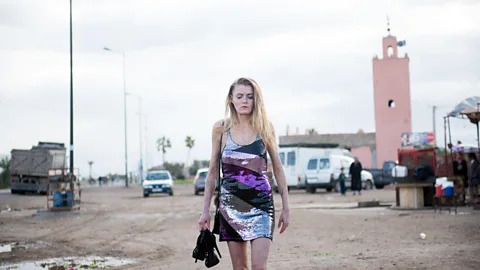 Alamy
AlamyDirty God tells the sad, funny, inspirational story of a young working-class woman (Vicky Knight) who fights to rebuild her identity after being badly scarred in an acid attack. Balancing the gorgeously poetic with the heart-rendingly grim, the political with the intimately personal, Dirty God confirms that its director, Polak, is an exceptional talent. For one thing, she is Dutch, and this is her first English-language film, but her portrayal of London council-estate life is as detailed and believable as any insider’s . (NB)
Lorene Scafaria, Hustlers
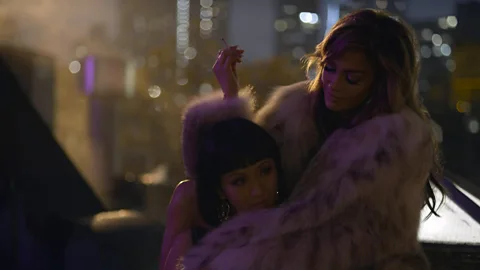 Alamy
AlamyThere has been entirely justified bafflement at J-Lo’s definitive star performance being ignored in the best ing actress category, but frankly, we should all be just as furious at the complete omission of Hustlers full stop. Based on the true story of the New York stripper crew who drugged and fleeced their Wall Street clientele, it is a more interesting, far less familiar crime film than The Irishman, and an inestimably more intelligent inquiry into class divisions than Joker. And Scafaria’s direction of it, with its reconfiguration of the strip-club space through the female gaze, is absolutely central to its singular force within Hollywood cinema this year. (HM)
Céline Sciamma, Portrait of a Lady on Fire
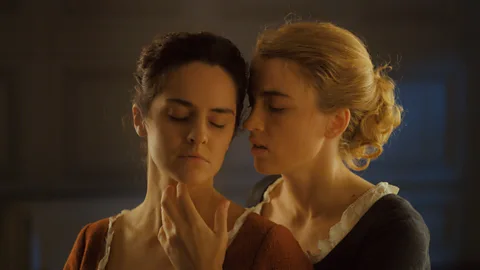 Alamy
AlamySciamma’s gritty third film, Girlhood, was set in a tough African-French neighbourhood on the edge of present-day Paris. For her fourth film, she jumped to a country chateau in the 18th Century, and yet the results are just as urgent and assured. A slow-burning romance between an aristocrat and the artist who is hired to paint her, Portrait of a Lady on Fire looks as bright and attractive as any traditional frocks-and-carriages period drama, but it is stealthily radical, doing without male characters altogether, and eschewing action in favour of the thoughts and feelings of women for whom arranged marriages are a fact of life. A game-changer. (NB)
Lulu Wang, The Farewell
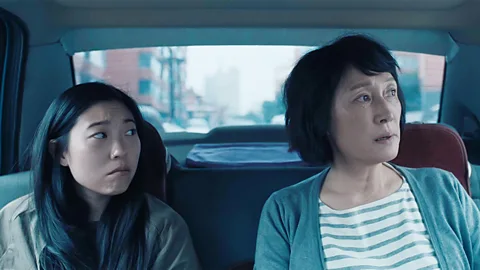 Alamy
AlamyWang's comic drama, based on her own family history, feels so true and personal that it’s possible to overlook how ambitious and brilliantly accomplished it is. The story is intimate, as a young Chinese-American (Awkwafina, whose acting snub is another outrage) travels to China to see her dying grandma, the entire family hiding that reality from the sly old woman. Yet Wang's scope is huge. She captures the textures of New York and China, along with their broad cultural differences. And she modulates the tone perfectly. The film is funny and emotional yet never mawkish. The Farewell won’t get Wang an Oscar, but it has launched her career in dazzling fashion. (CJ)
Olivia Wilde, Booksmart
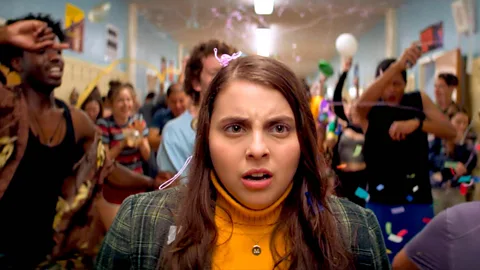 Alamy
AlamyIn her very funny first film as director, Wilde transforms the buddy movie, with Beanie Feldstein and Kaitlyn Dever as studious best friends who decide to party through the night. Booksmart is not a girls’ version of a boys-misbehaving movie, though. It’s a film about female friendship that is by turns hilarious, absurdist and touching. Throughout, Wilde’s comic timing is impeccable. She handles raucous set pieces – like a druggy hallucination involving dolls, and small-scale conversation, in which the heroines share the kind of insecurities and confidences that best friends do – with equal skill. Exuding talent and confidence, Wilde brings a fresh voice to familiar tropes. (CJ)
Love film? BBC Culture Film Club on Facebook, a community for film fanatics all over the world.
If you would like to comment on this story or anything else you have seen on BBC Culture, head over to our Facebook page or message us on Twitter.
And if you liked this story, sign up for the weekly bbc.com features newsletter, called The Essential List. A handpicked selection of stories from BBC Future, Culture, Worklife and Travel, delivered to your inbox every Friday.
